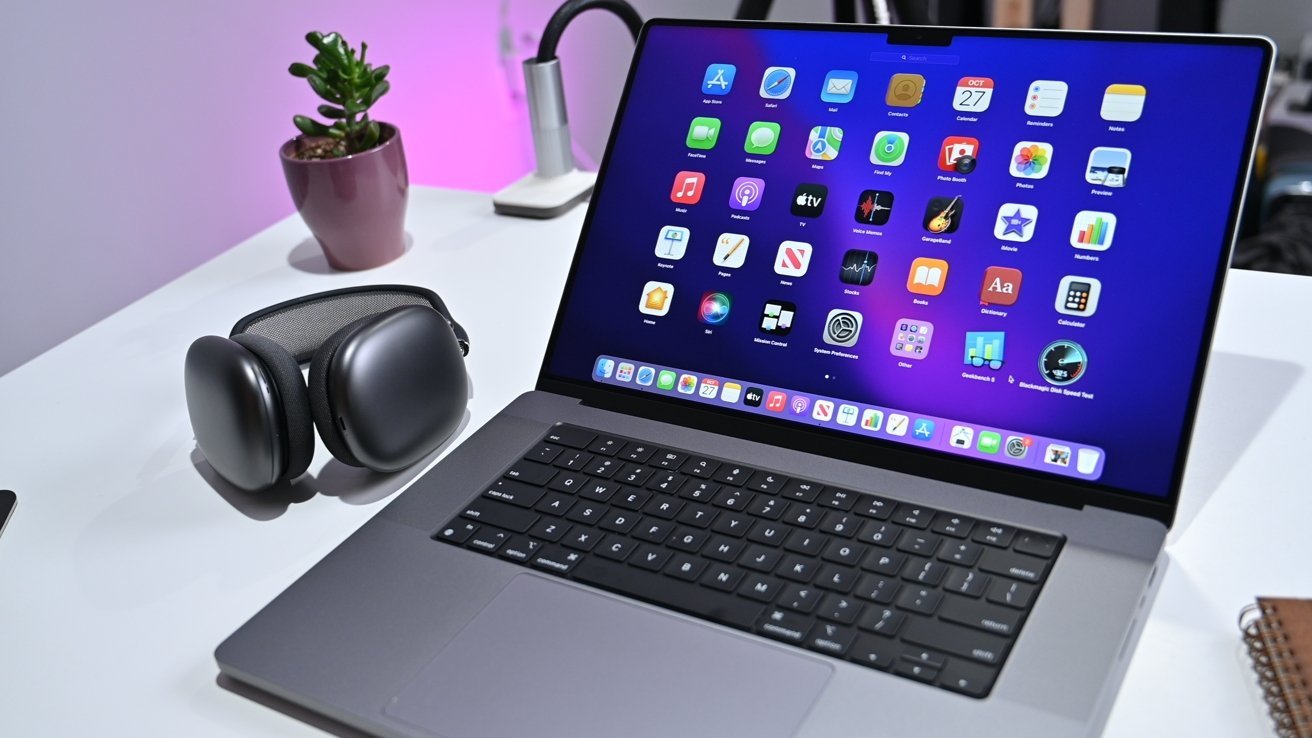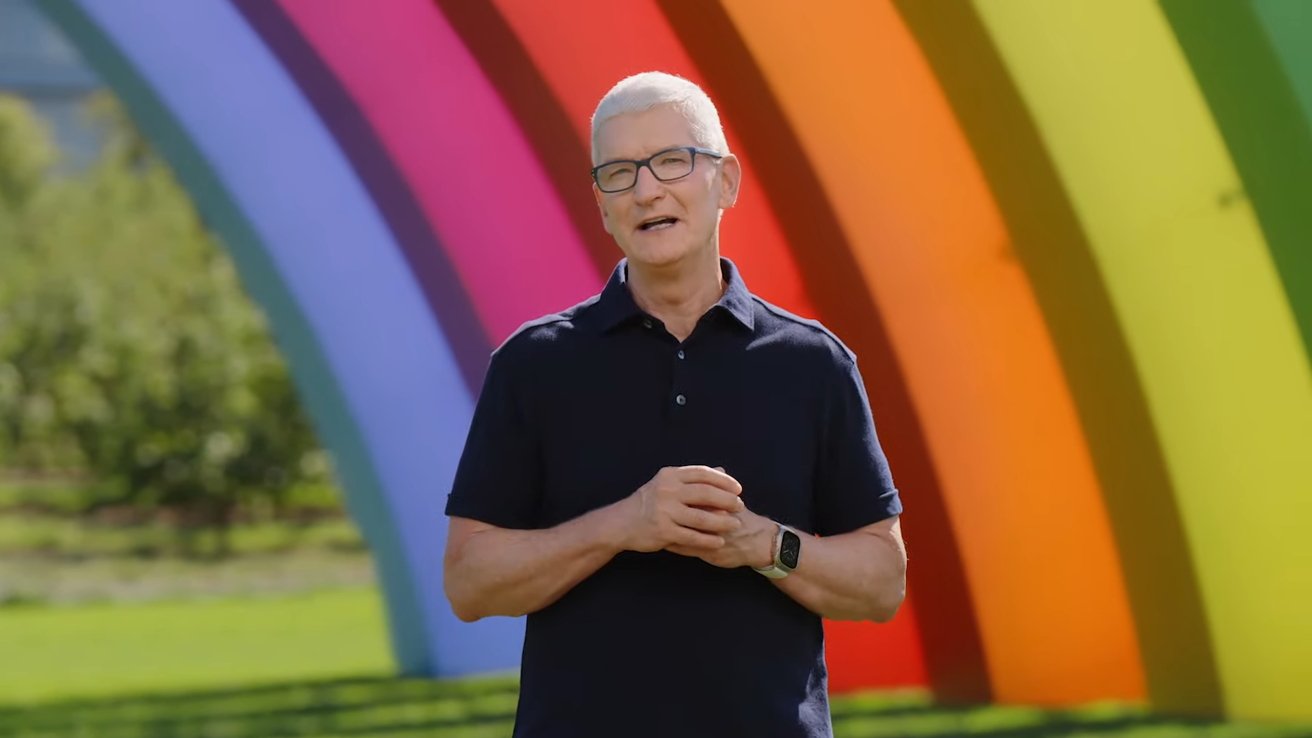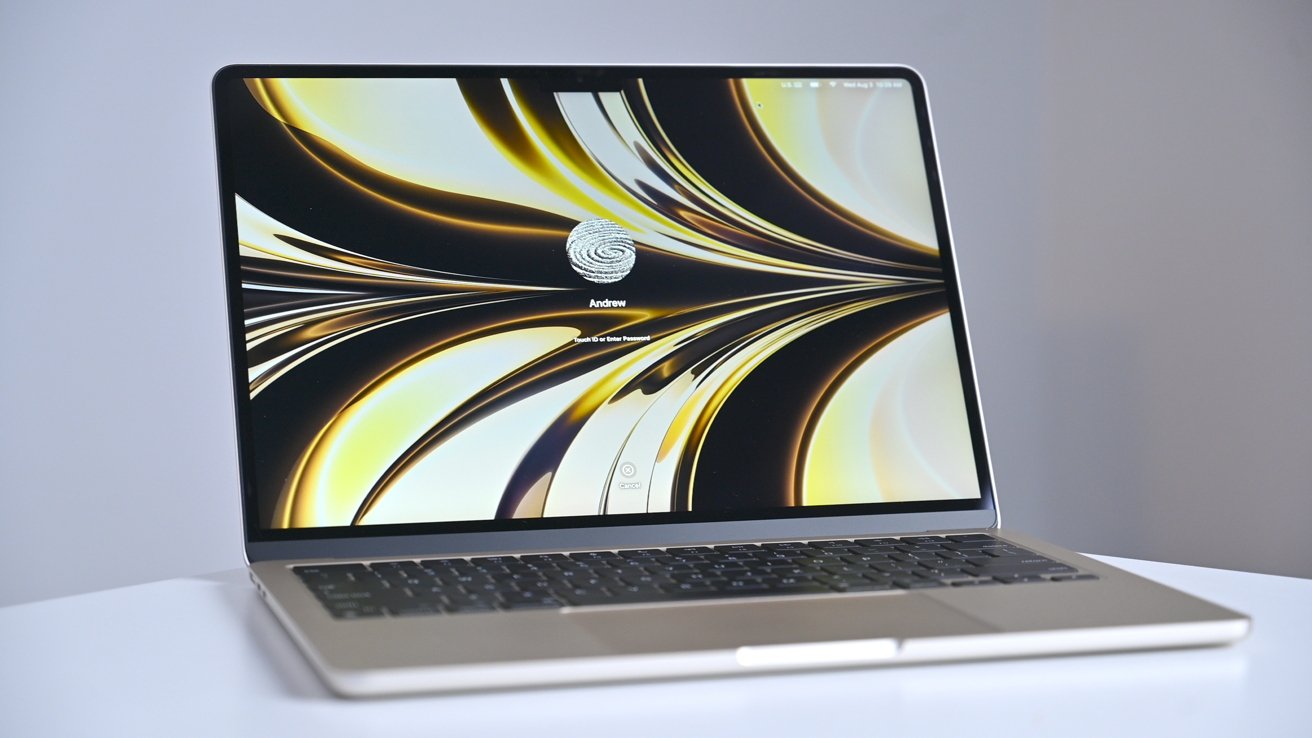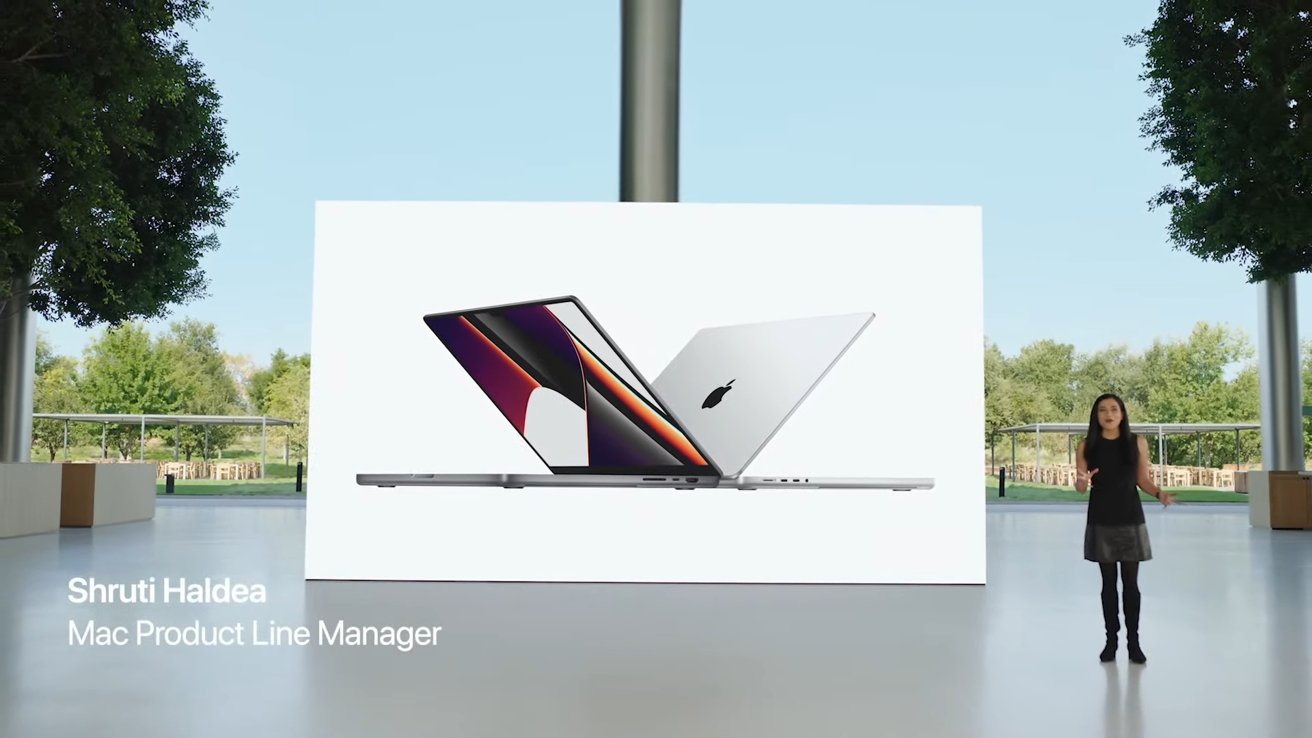16-inch MacBook Pro

AppleInsider may earn an affiliate commission on purchases made through links on our site.
Based on comments from Apple CEO Tim Cook during the quarterly earnings report, the odds of a November release for a new 14-inch and 16-inch MacBook Pro have dropped.
The fall is Apple's main product launch period, with the annual iPhone refresh being the centerpiece of events. Flanking them are Apple's other ecosystem changes, covering product areas including the iPad, the Apple Watch, and the Mac, which can sometimes get their own events.
Apple's M2 processor debuted in 2022, with new MacBook Air and 13-inch MacBook Pro models. And, before that, the incredibly powerful Mac Studio found its way to store shelves.
The obvious next choice for the M2 is in the 14- and 16-inch MacBook Pro. That update has been rumored for some time. November has been the most likely timeframe.
A combination of a fall release cycle with atypical timing, and comments made by Tim Cook directly, have called a November event into question.
So now, we may not even see anything new until 2023.
Maestri's "challenging compare" and Cook's "set" lineup
A couple of things were mentioned in a call to analysts following Apple's quarterly results release. As is typical for a results call, Apple doesn't offer opinions or details of yet-to-launch products.
However, you can still pull out details based on what is said.
During the call, which saw Apple CEO Tim Cook and CFO Luca Maestri discuss generally favorable revenues and currency challenges, the pair also broke down details based on each unit.
For the Mac, Maestri spoke about the "great quarter" for the Mac unit, achieving an "all-time revenue record of $11.5 billion, up 25% year-over-year despite significant FX headwinds." Maestri points out three things that helped the quarter, including the launch of the M2 MacBook Air and 13-inch MacBook Pro.
Second was Apple's ability to "satisfy pent-up demand that carried forward from the significant supply constraints we faced during the July quarter," explained the CFO. Lastly, as the supply position improved, the channel was able to be filled completely.
Maestri also referenced how Apple has attracted upgraders and new customers, increasing the install base to an all-time high. "In fact, we set a quarterly record for upgraders while nearly half of customers buying Macs during the quarter were new to the device."

While good for the quarter gone by, Maestri offered some guidance for the fiscal Q1 2023 quarter — the crucial holiday quarter. Maestri expects the quarter will see a deceleration of performance growth for the company as a whole.
A lot of this is a 10% negative impact on year-on-year growth caused by currency exchanges, but he also highlights the Mac.
"Second, on Mac, in addition to increasing FX headwinds, we have a very challenging compare against last year, which had the benefit of the launch and associated channel feel of our newly redesigned MacBook Pro with M1," the financial chief offered. "Therefore, we expect Mac revenue to decline substantially year-over-year during the December quarter."
The other curious comment is from Cook himself. In a section about retail, Cook thanks Apple employees across the company, and adds color about what's being sold in the quarter.
In opening statements, Cook addressed the analysts directly.
"As we approach the holiday season, with our product lineup set, I'd like to share my gratitude to our retail AppleCare and channel teams for the work they are doing to support customers."
Right in the middle of that sentence is the key. Apple is entering the busy shopping season "with our product lineup set."
Interpreting the leaves
Maestri's comments paint the fiscal Q1 2023 quarter as being tough for Mac revenue. The reasons offered for his forecast are rooted in known past events and in good educated guesses.
In discussing why, he referred to the high Mac revenue of Q1 2022, brought on by the M1 MacBook Pro launches. This could be a telling element depending on how you view evidence by omission.
Maestri and Cook don't talk about future product launches, as it is usually left to Apple's PR team to inform of upcoming events. This hasn't stopped them from saying another event is on the way or that new Macs are inbound.

After all, if there were to be a launch in Q1 2023, for the Q1 2022 to still be better and be worthy enough to reference M1 launches, the Q1 2023 Macs would have to be anticipated as low-sellers in comparison.
No company's leadership in its right mind would tell investors that the launch of products in the next quarter will be underwhelming. The most likely reason is that there won't be an event or release of any sort.
And, Cook's clear "product lineup set" remark practically kills off any other speculation of an event.
If Apple were to have more products to launch, such as new Macs, Cook wouldn't knowingly say a lineup has been "set," as that says there's nothing more to come.
This late in the year and with other commentary in play, it seems like the product catalog has been completely finalized.
Another launch is doubtful
After months of rumors about M2 changes, including adding M2 to the 14-inch MacBook Pro and 16-inch MacBook Pro and an expected overhaul of the Mac mini, the financial commentary makes it seem very unlikely that there will be another launch in 2022 for Macs.
Sadly, we can't even stretch things by questioning if a change in chip constitutes a new model for a Mac. Previous refreshes of the Mac line that were simple specification bumps were given at least a press release announcement and have been counted as full model upgrades in the past.
As a more recent example, take the 2022 iPad Pro refresh, which largely consisted of Apple sticking an M2 inside instead of the M1, and adding the Apple Pencil hover feature, while keeping practically everything else static about the models. This relatively simple pair of changes was important enough for Apple to perform a press release launch, and it would be reasonable to expect the same for a Mac or MacBook Pro update in a similar vein.

Further evidence of a late 2022 refresh being unlikely is in the cadence of other Apple Silicon hardware updates. It took Apple a year and a half to go from the M1 MacBook Air and 13-inch MacBook Pro to the M2 versions of each.
By contrast, the M1 14-inch MacBook Pro and 16-inch counterpart were launched in October 2021, making them just a year old.
Being only a year old isn't a barrier for Apple's hardware updates, as in the Touch Bar era of Intel MacBook models, the time between updates repeatedly went down to around a year. So it would generally be possible if components were available.
And components are also a problem, specifically the M2 chips. Apple waited 11 months between introducing the M1 and the faster M1 Pro and M1 Max chips.
With M2 landing in June 2022, it seems extremely early in the chip cycle to bring out the Pro and Max versions that would go into updated MacBook Pro models.
All of this firmly puts forward the idea of Apple truly taking a rest from product launches for 2022. This pushes new Macs into early 2023.
Apple can't lie in earnings reports, lest they fall afoul of the Securities and Exchange Commission, or an assortment of other regulatory bodies internationally. There's enough wiggle-room in Cook's statement, that if you squint and look at it just so, Apple rolling out a new MacBook Pro or Mac mini in the same form factor before the end of the year could be construed as an enhancement or other similar legal dodge to avoid SEC ire.
But, it would be new phrasing for Apple. And, Cook and Maestri have been at this long enough to make sure that they don't say anything that requires a regulatory dance to work around after-the fact.
A better way to avoid that ire is to not have said anything at all about the product lineup during the heavily scripted earnings announcement, going into the holiday season.
But they did. And it wasn't because they were caught off-guard.